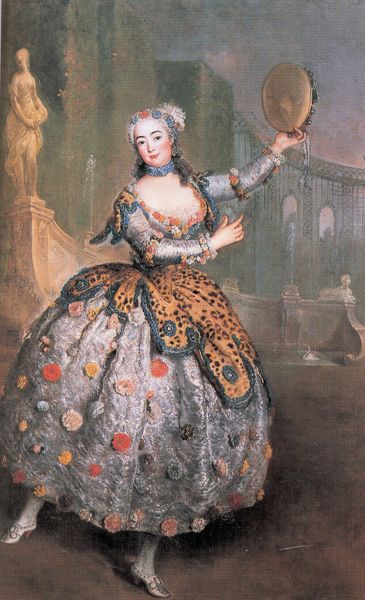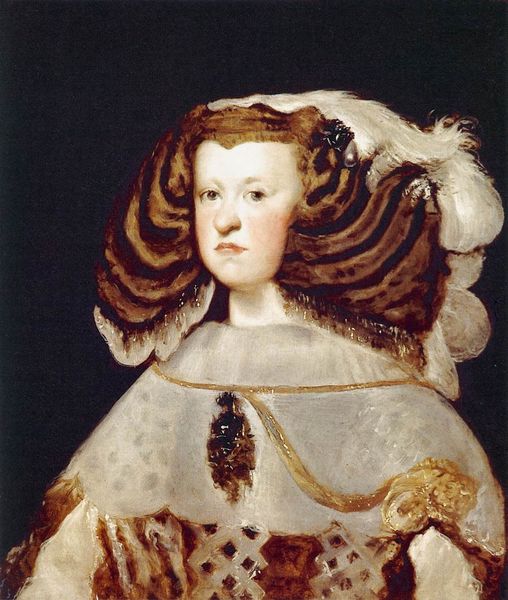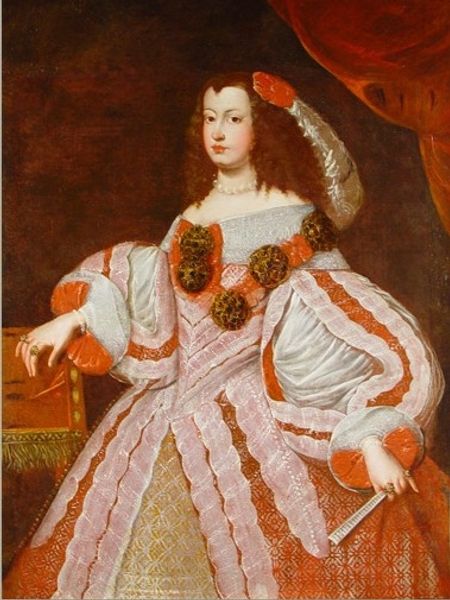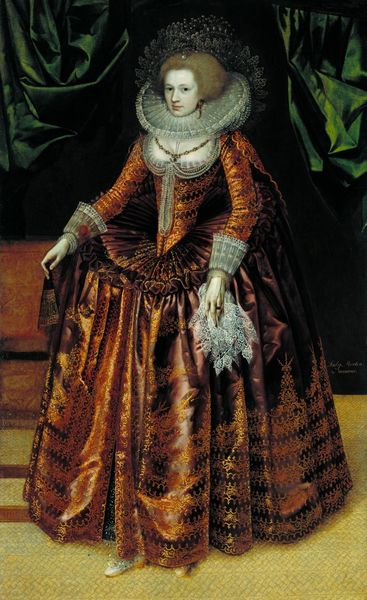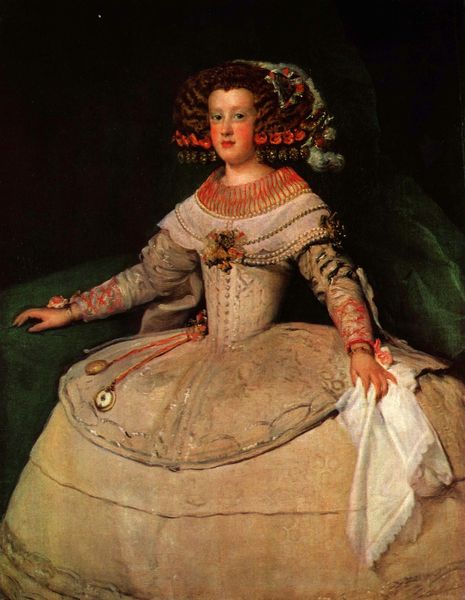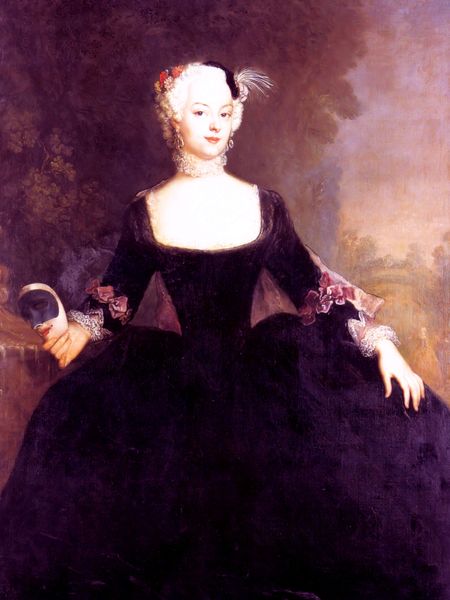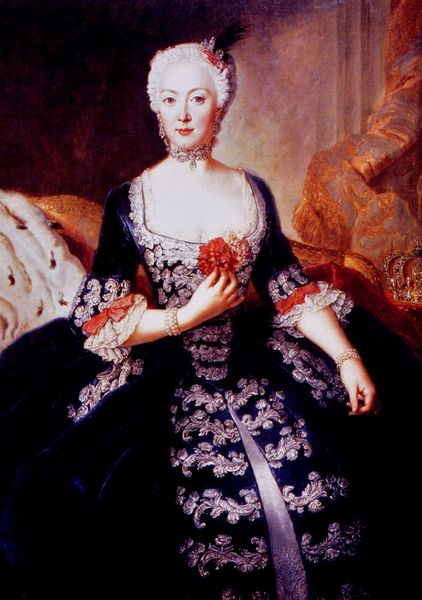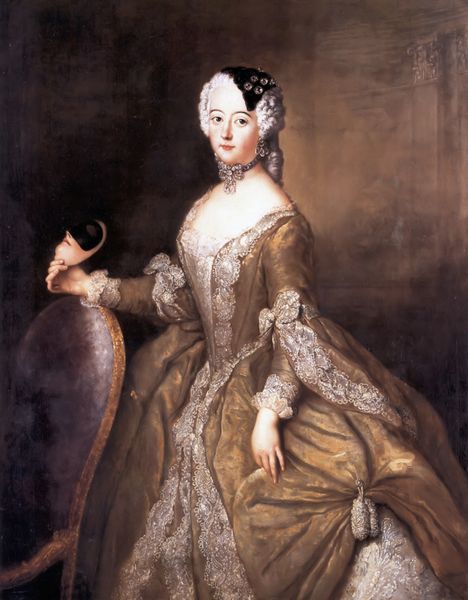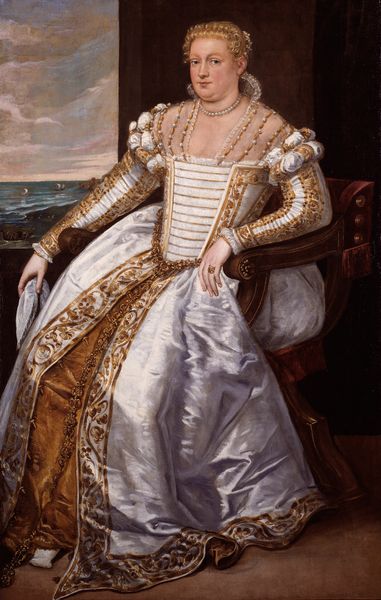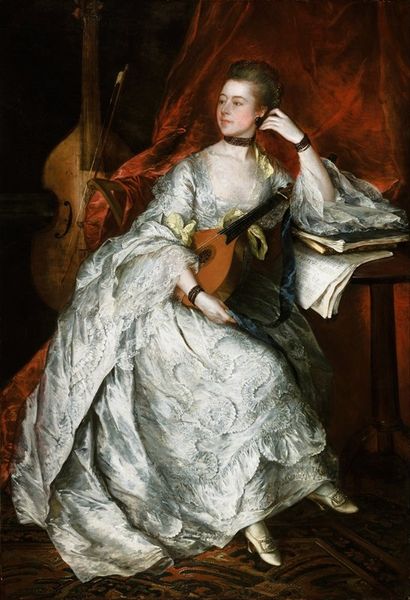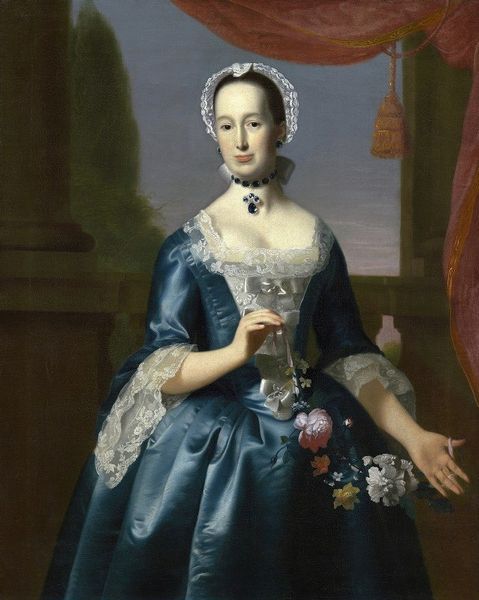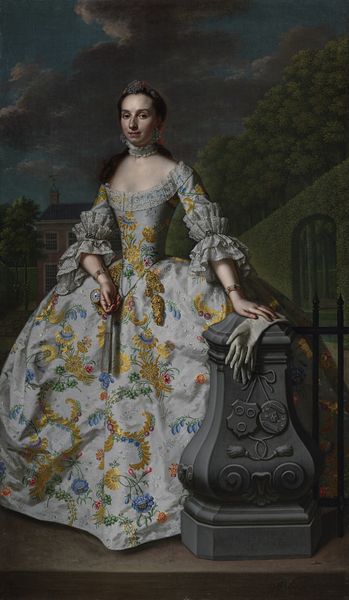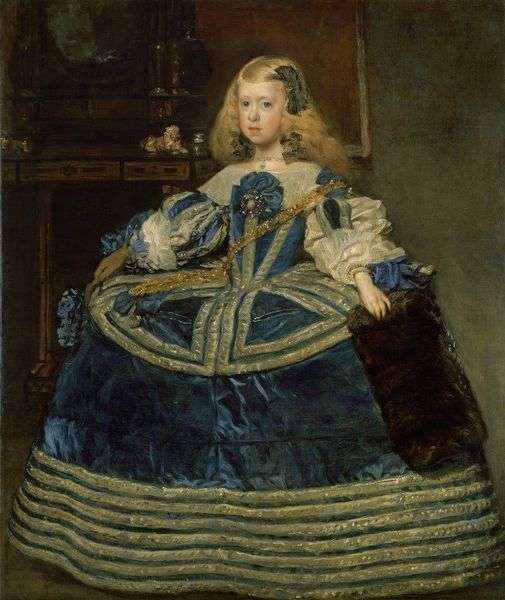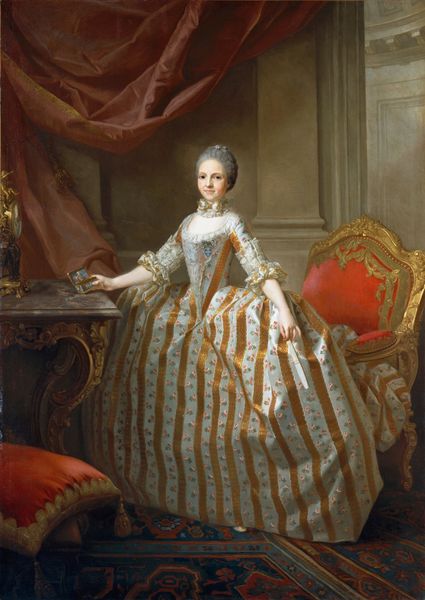
painting
#
portrait
#
baroque
#
painting
#
historical fashion
#
costume
#
cultural celebration
#
veil as a decoration
#
genre-painting
#
history-painting
#
academic-art
#
lady
Copyright: Public domain
Juan Carreno de Miranda painted "Portrait of Ines de Zuñiga y Velasco" during the Baroque era. Here we have a young woman of the Spanish court, her garments speak to the rigid rules of the aristocracy while subtly suggesting the constraints placed on women of her class. Ines’ identity is not just personal but profoundly shaped by the expectations of her gender and social standing. The voluminous dress, while signaling wealth and status, also acts as a kind of barrier, obscuring the individual beneath layers of fabric and social convention. We might consider how Ines and other court women navigated their identities within these confines. Were these women simply passive figures in the theater of court, or did they find ways to exert influence? The small dog she pets is a symbol of her wealth and status but also a symbol of companionship for women in this era. Through de Miranda’s rendering, Ines emerges not merely as a subject of portraiture but as a figure embodying the complexities of identity, class, and gender in the Spanish court.
Comments
No comments
Be the first to comment and join the conversation on the ultimate creative platform.
